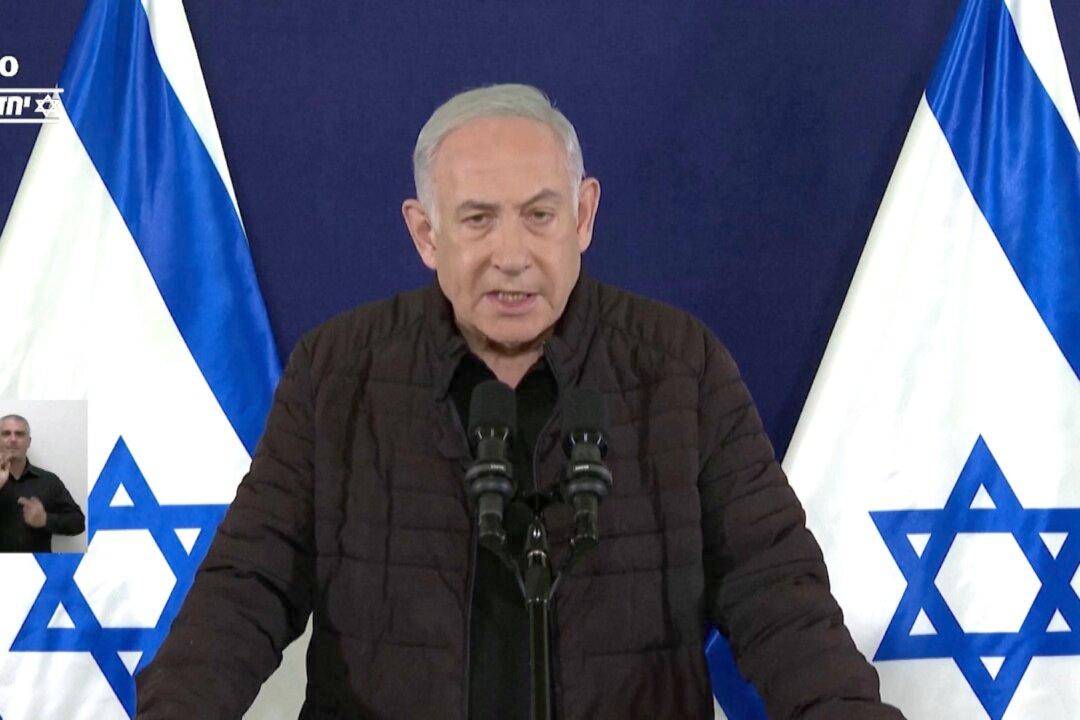Israeli Prime Minister Benjamin Netanyahu claimed that if the Israeli military doesn’t remove Hamas the United States and Europe could be next, in what could be seen as an attempt to galvanize support for Israel in the West.
In an interview Monday with Fox News‘ Sean Hannity, Mr. Netanyahu stated that Israel has to “win not only for our sake, but for the sake of the Middle East, for the sake of our Arab neighbors.”





